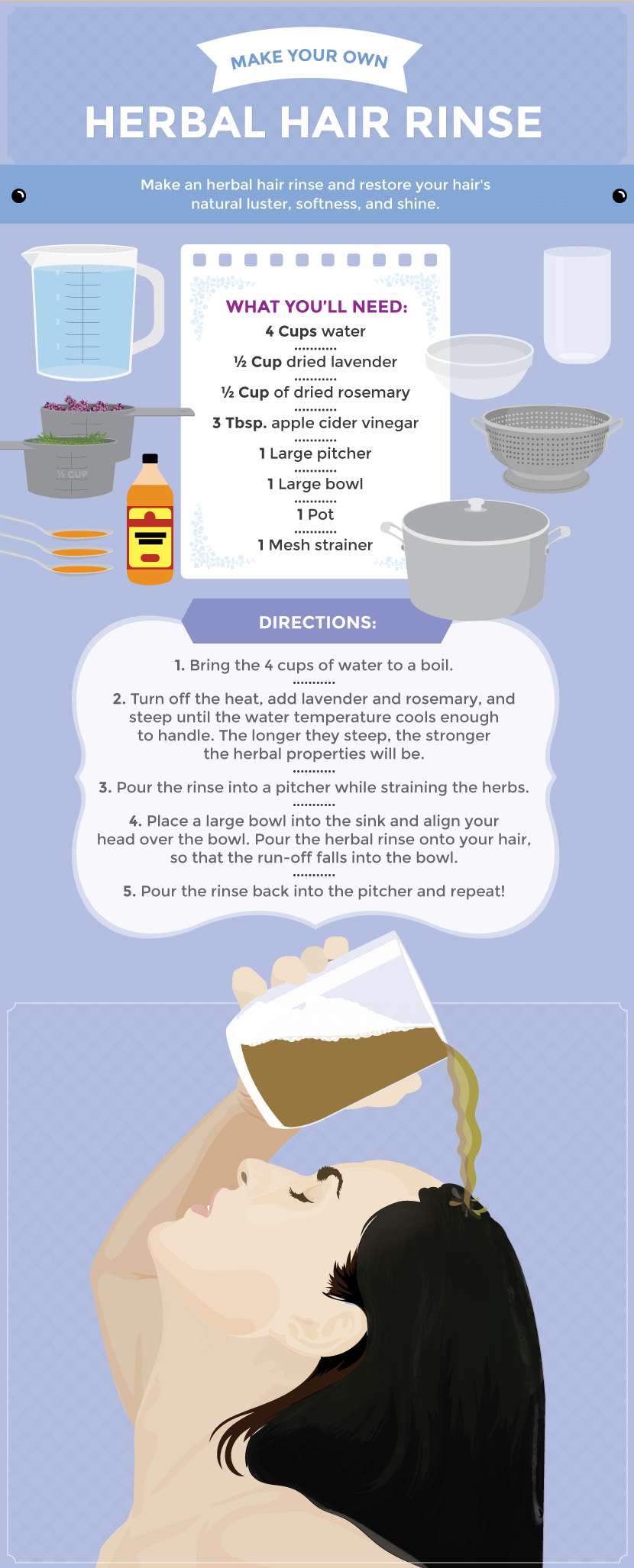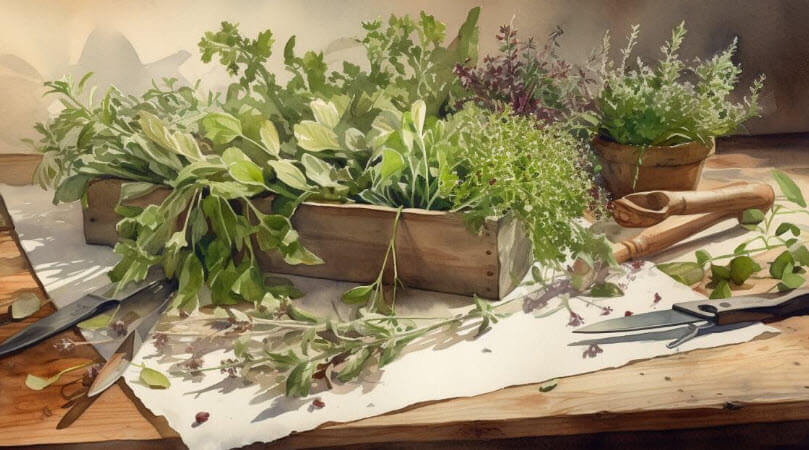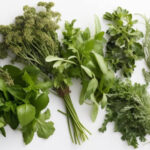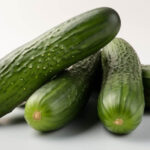Would you prefer to listen to a short podcast discussion about this article? Click on the audio below.
Herbs are a delightful addition to any garden, providing fresh flavours, enticing aromas, and a touch of natural beauty. For those living in the UK, cultivating herbs is a rewarding experience, as the country's climate and fertile soil create an ideal environment for herb growth. In this article, we will explore the process of harvesting, storing, and using herbs grown in the UK. Whether you're a seasoned gardener or a beginner, this guide will provide valuable insights into maximizing the potential of your herb garden.
Benefits of Growing Herbs in the UK
Before delving into the details of herb cultivation, it's essential to understand the benefits of growing herbs in the UK. The temperate climate of the country, with its moderate rainfall and distinct seasons, offers favourable conditions for herb cultivation. The rich and well-drained soil provides a nutrient-dense foundation for robust herb growth. By harnessing these natural advantages, herb gardeners in the UK can enjoy an abundant harvest of fresh, flavourful herbs throughout the year.
Choosing the Right Herbs to Grow
When planning your herb garden, it's crucial to select the right herbs to grow. Herbs can be categorized as annuals or perennials, depending on their life cycle. Annual herbs complete their life cycle within a year, while perennials can survive for multiple years. Consider a mix of both types to ensure a continuous supply of herbs. Additionally, certain herbs thrive particularly well in the UK's climate, such as rosemary, thyme, sage, parsley, mint, and chives. These herbs are versatile, easy to grow, and widely used in various culinary dishes.
Preparing the Herb Garden
To set the stage for successful herb cultivation, proper preparation of the herb garden is essential. Start by selecting a location that receives ample sunlight throughout the day, preferably for at least six hours. Most herbs thrive in well-drained soil, so ensure the chosen spot has good drainage. If necessary, amend the soil with organic matter to improve its texture and fertility. By creating a suitable environment, you provide the herbs with the best chance of flourishing.
Caring for Herbs
Once your herb garden is established, it's crucial to provide proper care to ensure healthy growth. Regular watering is essential, especially during dry spells, as herbs generally prefer slightly moist soil. Avoid overwatering, as this can lead to root rot. Fertilize the herbs every few weeks with a balanced organic fertilizer to promote robust growth. Pruning the herbs regularly helps maintain their shape and encourages bushier growth. Furthermore, by harvesting regularly, you remove any damaged or wilted leaves, allowing the herbs to focus their energy on producing new growth.
While caring for your herbs, it's important to be mindful of common pests and diseases that can affect their health. Keep an eye out for aphids, snails, and slugs, as they are known to be herb garden pests. Use organic pest control methods such as companion planting or introducing beneficial insects like ladybugs to keep these pests in check. If you notice any signs of diseases such as powdery mildew or fungal infections, promptly remove the affected leaves and treat the herbs with organic fungicides.

Harvesting Herbs
The moment you've been waiting for has arrived – it's time to harvest your herbs! Harvesting herbs at the right time is crucial to ensure optimal flavour and aroma. The timing of the harvest depends on the type of herb and the purpose for which it will be used. Generally, herbs are at their best just before they flower, as this is when their essential oils are most concentrated.
When harvesting leafy herbs such as basil, parsley, or cilantro, snip off the outer leaves, leaving the inner ones to continue growing. This method allows for a continuous harvest throughout the growing season. For woody herbs like rosemary, thyme, or sage, you can trim off sprigs as needed, making sure not to remove more than one-third of the plant at a time. This allows the herbs to regenerate and ensures a steady supply.
Storing Herbs
Preserving the flavours and aromas of freshly harvested herbs is essential for long-term use. There are various methods for storing herbs, depending on personal preferences and the specific herb. One popular method is drying herbs. Gather small bunches of herbs, tie them with twine, and hang them upside down in a dry, well-ventilated area away from direct sunlight. Once the herbs are completely dry and crumble easily, store them in airtight containers in a cool, dark place.

Another effective way to store herbs is by freezing them. Chop the herbs finely or leave them as whole leaves and place them in ice cube trays. Fill the trays with water or olive oil and freeze them. Once frozen, transfer the herb cubes into airtight freezer bags or containers. This method allows for easy portioning and retains the flavours of the herbs for an extended period.
For those who enjoy experimenting in the kitchen, making herb-infused oils and vinegars is a fantastic way to preserve herbs while adding a burst of flavour to dishes. Simply place clean, dry herbs in a sterilized bottle or jar, cover them with oil or vinegar, and let them infuse for a few weeks. Strain the liquid, and you'll have a flavourful culinary companion ready to enhance your favourite recipes.
Using Herbs in Cooking and Remedies
Now that you have a bountiful supply of freshly harvested and well-preserved herbs, it's time to put them to good use. Herbs add depth and complexity to a wide range of culinary dishes. Use fresh herbs to garnish salads, flavour soups and stews, and elevate the taste of roasted vegetables or grilled meats. The possibilities are endless, limited only by your culinary creativity.
Beyond culinary uses, herbs have been employed for centuries in natural remedies and herbal medicine. Harness the power of herbs to create herbal teas and infusions that promote relaxation, aid digestion, or boost the immune system. Experiment with different combinations of herbs to discover your favourite herbal brews.
If you're interested in delving further into the world of herbal remedies, you can explore making natural remedies such as herbal salves, tinctures, or balms. Research the specific properties of different herbs and their potential benefits, and follow trusted recipes to create your own natural remedies. Remember to consult with a qualified herbalist or healthcare professional for guidance and dosage recommendations.

Conclusion
Growing, harvesting, storing, and using herbs in the UK can be a fulfilling and rewarding experience. By following the guidelines outlined in this article, you can cultivate a thriving herb garden and enjoy the flavours, aromas, and medicinal properties that herbs offer. Remember to choose the right herbs for your garden, provide proper care and maintenance, and harvest and store your herbs correctly to maximize their freshness and potency. Whether you're a culinary enthusiast or a herbal remedy enthusiast, incorporating herbs into your daily life will add a delightful touch to your dishes and wellness routines.
FAQs (Frequently Asked Questions)
1. Can I grow herbs indoors in the UK?
Yes, you can grow herbs indoors in the UK. Choose a sunny spot near a window and provide the herbs with adequate light and water for successful growth.
2. How often should I fertilize my herbs?
Fertilize your herbs every few weeks with a balanced organic fertilizer. Avoid over-fertilizing, as this can lead to excessive leaf growth and less concentrated flavours.
3. Can I use frozen herbs in cooking?
Yes, frozen herbs can be used in cooking. Simply add them directly to dishes while cooking or thaw them before use. However, keep in mind that the texture may change after freezing, so they are best suited for cooked dishes rather than garnishes.
4. How long can dried herbs be stored?
Properly dried and stored herbs can last up to one year. However, for optimal flavour, it is recommended to use them within six months.
5. Are all herbs safe for consumption?
While most culinary herbs are safe for consumption, it's essential to research and ensure that the herbs you're using are not known to cause allergies or have any potential interactions with medications you may be taking. If in doubt, consult with a healthcare professional or herbalist.
If you need any further information or assistance with this article, don't hesitate to Contact Us




















